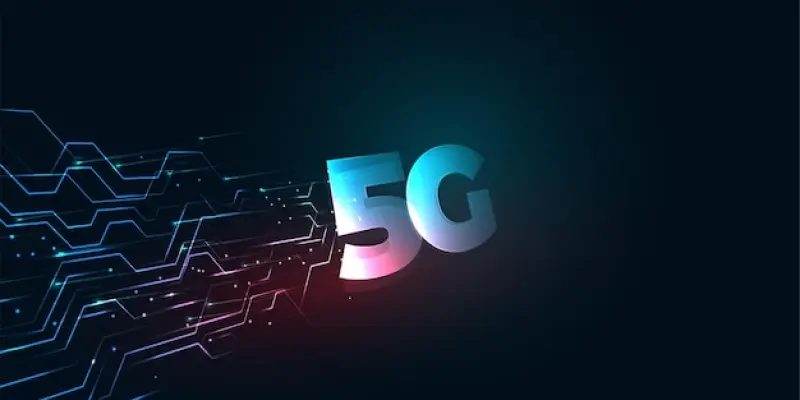The advent of 5G networks has ushered in a new era of connectivity, promising unprecedented speed and reliability, but these advancements come with heightened security concerns that need to be addressed systematically. Germany has proactively responded to these challenges through a comprehensive legal and regulatory framework aiming to ensure the security of both national and private 5G networks. This article delves into the measures and frameworks established, with a keen focus on the German Telecommunications Act (TKG) and the significant contributions of the BSI (Germany’s Federal Office for Information Security). The blend of legislative mandates, technical guidelines, and international cooperation highlights Germany’s robust strategy to secure 5G infrastructure.
Legislative Mandates for 5G Security
Germany’s approach to securing 5G networks is firmly rooted in legislative mandates, which recognize the necessity for stringent security standards to protect critical infrastructure. Central to this endeavor is the German Telecommunications Act (TKG), which plays a pivotal role by explicitly mandating the certification of security-relevant components in mobile networks. This legislative move places the onus on the BSI to rigorously test and validate these critical network components, ensuring they adhere to high-security standards before their deployment.
Two key sections of the TKG are instrumental in this security process. Section 165 establishes the certification requirement for security-relevant components, ensuring that only those certified are deployed in 5G networks. Section 167 outlines the collaborative roles of the Bundesnetzagentur (Federal Network Agency), BSI, and the Federal Commissioner for Data Protection and Freedom of Information in developing a binding catalogue of security requirements. This evolving catalogue is continuously updated to keep pace with technological advancements, thereby ensuring that security measures adapt as the technology evolves. By embedding these mandates within the legislative framework, Germany ensures a reliable and secure deployment of its 5G infrastructure.
Technical Guidelines and Certification Processes
The enforcement of these stringent security measures is further reinforced by the IT Security Act 2.0 (IT-SiG 2.0), which legally embeds the certification of 5G network components within Germany. According to Section 165 (4) of the TKG, as of January 1, 2026, critical components must receive certification prior to their initial deployment in public 5G networks. This timeline provides a structured pathway for integrating security measures within the deployment process, adding an extra layer of scrutiny and validation.
The security requirements catalogue, developed through collaboration among the Bundesnetzagentur, BSI, and the Federal Commissioner for Data Protection and Freedom of Information, meticulously delineates the certification process. BSI’s Technical Guideline TR-03163 (Security in Telecommunications Infrastructures) specifies the certification schemes (including Common Criteria, NESAS CCS-GI, and BSZ schemes), along with their application areas and requirements relevant to 5G components. This comprehensive approach ensures that all critical components meet stringent security standards before their integration into the network. This robust methodology highlights Germany’s commitment to maintaining high-security standards and reinforces the integrity of its 5G infrastructure.
International Collaboration and Standardization
Securing 5G networks extends beyond national borders, making international collaboration a pivotal aspect of Germany’s strategy. While the Cybersecurity Act (CSA) at the European level proposes certification as a voluntary measure, Germany has made it obligatory through national legislation (via IT-SiG 2.0). To safeguard German security interests within the European framework, the BSI actively participates in various EU committees related to 5G, ensuring that German standards align with European directives.
One notable contribution is the BSI’s involvement in the ENISA working group responsible for creating a European 5G cybersecurity certification scheme (EU 5G Scheme). This group, involving industry experts and European authorities, aims to establish future certification standards for 5G components. Additionally, the BSI collaborates with industry committees such as GSMA and 3GPP, and technical standardization bodies like ETSI and CEN/CENELEC, to integrate security by design principles into 5G and emerging 6G technologies. These collaborative efforts streamline the harmonization of security measures across borders, while also fostering innovation within a secure framework.
Security Measures for Private 5G Networks
The framework for securing 5G networks extends beyond public infrastructures to encompass private 5G networks, especially for companies classified as KRITIS (critical infrastructure). These companies are subject to the stringent regulations of the BSI-KritisV and have the capability to independently operate their private 5G networks. If these networks facilitate essential services, they are generally considered critical and must adhere to the requirements stipulated in Section 8a BSIG (BSI Act). This classification ensures that security measures for private networks are on par with public networks, thus maintaining a uniform standard of security across all platforms.
In scenarios where private networks are not regulated by stringent mandates, they may still benefit from adhering to the IT-Grundschutz profiles, which are specifically designed for securing 5G campus networks. These profiles provide a structured approach to implementing security measures, ensuring that even in less regulated environments, a high level of security can be maintained. Thus, by providing detailed guidelines and adaptable frameworks, Germany ensures that both national and private 5G networks adhere to rigorous security standards.
Resources and Further Reading
The arrival of 5G networks marks a transformative period in connectivity by offering remarkable speed and reliability. However, these innovations bring increased security challenges that must be systematically tackled. Germany has proactively addressed these issues through a thorough legal and regulatory framework designed to protect national and private 5G networks. This article examines the measures and structures put in place, particularly focusing on the German Telecommunications Act (TKG) and the critical role played by the BSI (Germany’s Federal Office for Information Security). By merging legislative requirements, technical guidelines, and international collaboration, Germany showcases its robust strategy for securing 5G infrastructure. Such a comprehensive approach ensures that the country remains resilient against emerging cyber threats while embracing the benefits of new technology. Germany’s proactive stance could serve as a model for other nations navigating the complex landscape of 5G security.

